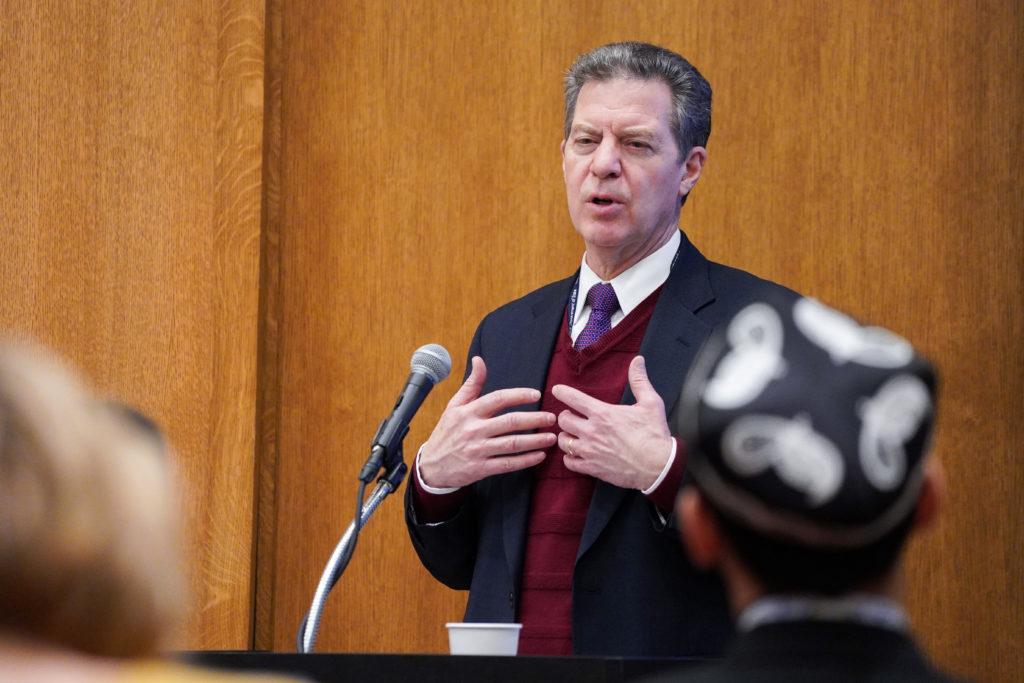The U.S. ambassador-at-large for international religious freedom spoke at the Textile Museum Wednesday about the role of religious freedom in foreign policy.
The event, co-hosted by the museum and the Loeb Institute for Religious Freedom, featured former Kansas Gov. Sam Brownback, who was sworn in as ambassador-at-large in February 2018. Following opening remarks from Samuel Goldman, the executive director of the Loeb Institute, and Paul Wahlbeck, the interim dean of the Columbian College of Arts and Sciences, Brownback discussed the ways that bolstering religious freedom internationally promotes worldwide peace.
“Religious freedom is an international human right, and it is, in my estimation, a God-given right,” he said. “You’ve got this global human right that many nations and nations with a majority of the population of the world violate.”
Brownback said that while religion can act as a “powerful force for good,” it can also be “manipulated for evil.” He said many countries’ most prominent groups persecute religious minorities, citing examples like the internment of Muslim Uighurs in China and the ethnic cleansing of Rohingya Muslims in Myanmar.
“You think the world is past this and this doesn’t happen anymore, but the sad reality is that it does happen in the world,” he said. “That’s why it’s so important for government’s role in religion to be to protect the right of freedom of religion.”
Brownback said engaging “religious actors” in peacebuilding processes promotes the likelihood of conflict resolution. He said appealing to a population’s religious beliefs often offers clashing sides “a real chance to get something accomplished for peace.”
He added that external military presence and intervention in countries experiencing long-standing religious conflict is only a temporary solution, while reconciliation between religious groups is required to establish permanent peace.
“That’s got to involve the faith communities reconciling, that’s going to involve them sitting across from each other and saying, ‘Yes, this happened 300 years ago, and we need to address it, we need to talk about this if we’re ever going to get the actual wound healed,’” he said.
Brownback encouraged an audience of about 40 people to help advocate for international religious freedom.
“We’re the country in the world that will lean in on a topic like this,” he said. “Contact people and engage them because your advocacy can be very helpful to individuals who just need bodies to help out and lean in.”





